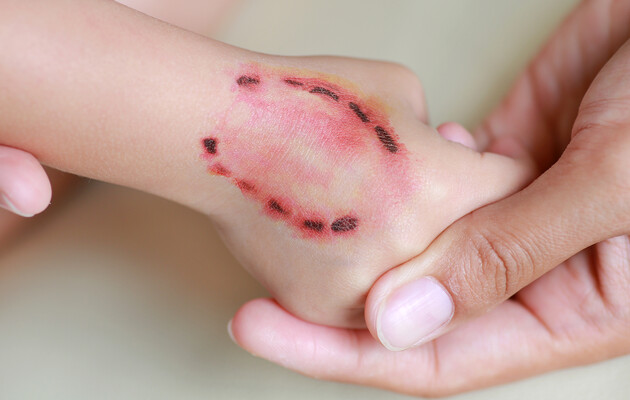The infection can get into a wound with dirt or as a result of an animal bite.

During the war, maintaining good health was one of the most important issues. Timely vaccination helps to avoid many infectious diseases.
Now it is more important than ever to be vaccinated, and therefore protected from tetanus. Tetanus is transmitted through the ingress of dirt into a wound or as a result of an animal bite , the Ministry of Health of Ukraine reminds.
What you need to know about routine tetanus vaccination:
- Vaccination, according to the National Calendar of preventive vaccinations, is included in the package of medical services at the primary level. This means that tetanus can be vaccinated free of charge. Both in public health care institutions that provide primary health care, and in private medical institutions and FLP doctors who have signed an agreement with the National Health Service of Ukraine and have the opportunity to vaccinate. It is important to have a declaration with your doctor for routine vaccination .
- The National Health Insurance Fund recommends that both adults and children check the date of the last vaccination. Do it yourself, if you have the opportunity. The pediatrician, therapist or family doctor with whom the patient signed the declaration will also help to form a vaccination schedule. We recommend that you do not ignore the vaccination schedule and get all the necessary vaccinations in a timely manner, if possible.
- Vaccination against dangerous diseases, including tetanus, begins in early childhood. The first vaccination is given to a child at two months. The second – in four months. The third – in six months. The fourth – at 18 months. The next vaccination is given every six years, and then every ten years.
- If a child misses a vaccination on the calendar, you do not need to start vaccination from the beginning . Just make a schedule of missing doses from your pediatrician or family doctor of your choice.
- The first routine revaccination of vaccinated adults is carried out at the age of 26 . Subsequent routine revaccination occurs every ten years. If adults have not been vaccinated or do not have the appropriate information, they should be vaccinated three times . The interval between the first and second dose should be four weeks. Between the second and third doses – six months. The next vaccination – revaccination, is carried out every ten years, but not earlier than one year after the third dose.
What you need to know about emergency tetanus vaccination
Emergency prevention of tetanus is shown in the case of:
- injuries with impaired integrity of the skin and mucous membranes;
- frostbite and burns (thermal, chemical, radiation) of the second, third and fourth degrees;
- penetrating lesions of the gastrointestinal tract;
- gangrene or tissue necrosis at any stage, abscesses;
- animal bites;
- childbirth outside of medical institutions.
It is important to carry out timely emergency prophylaxis of tetanus, which involves primary surgical treatment of the wound and the creation of immunological protection. To do this, if possible, contact the nearest hospital. You can find out more about emergency vaccination here.
Important! This publication is based on the latest and current scientific research in the field of medicine and is for informational purposes only. Publication cannot be a basis for making any diagnoses. If you are ill or need a diagnosis, see a doctor!
Read also: Vaccination for migrants: when and where to get routine vaccinations
Infectious disease doctors recommend not to miss routine vaccinations . Outbreaks of polio, measles and other diseases remind us that there are other dangerous diseases besides COVID-19, the only protection against which is vaccination. Read more in the interview of Alla Kotlyar with Fedor Lapiy in ZN.UA.


